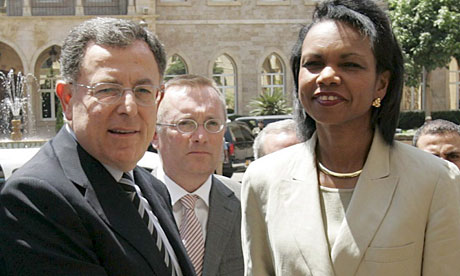Foreign minister wanted US, Nato and UN backing for offensive to end Iranian-backed Hezbollah's siege of government
- guardian.co.uk,
- Article history

Islam is the real positive change that you need to change for being a better person or a perfect human being, you can change yourself if you read QURAN, IF YOU DO THAT !! you will change this UMMAH, say I am not A Sunni or Shia, BUT I am just a MUSLIM. Be a walking QURAN among human-being AND GUIDE THEM TO THE RIGHT PATH.

No comments:
Post a Comment